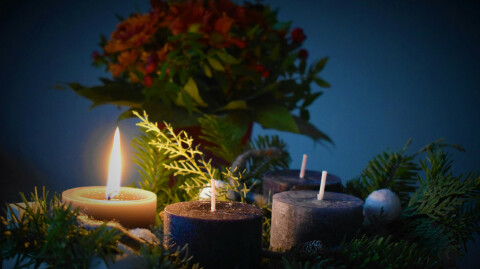TLDR: Reflections after attending the funeral of a former parishioner. I hope you enjoy.
I just returned from the funeral of former parishioner, Chip Matthews, at Saint Timothy’s Anglican Church. During the service, Chip and Laura’s son, Will, shared a story that has stayed with me. He once visited the Toshogu Shrine in Nikko, Japan, where the entrance to the sacred site is formed by twelve tall, perfectly matched columns. Yet one of those columns was curious, it had been set upside down. At first, Will thought it was a construction mistake. Later he learned that it was intentional. Without that one inverted column, the twelve would represent perfection, and the shrine “would have nowhere else to go.” The deliberate flaw reminded worshipers that no one is perfect, and no one is holy except God.
As I have written elsewhere, this practice is also seen in Islamic architecture and art in mosques, frescoes, and intricate tiled murals across the Middle East and parts of Europe. On a visit to Lisbon, Portugal, I once saw a magnificent, blue-tiled mural that appeared flawless. Then our guide pointed out a single inverted fleur-de-lis in the lower left corner. Many walls throughout the city share this subtle peculiarity. The message our Muslim brothers and sisters left is simple yet profound: only God is perfect. To attempt to create something flawless is to claim a perfection that belongs to God alone. Imperfection is woven into creation itself, and far from diminishing beauty, these small flaws often enhance it. They make art and life more meaningful.
What a powerful message to share at a funeral. We often have a tendency to portray the deceased as perfect, without fault or failing. A Catholic priest friend of mine once said, “I have never buried a bad person!” He meant that, at funerals, speaker after speaker describes the departed as so saintly that it seems heaven has no choice but to open its gates. But that’s not the gospel. Salvation is not something we earn through perfection; it is a gift of grace.
That’s why I appreciated Will’s honesty. He reminded us that imperfection is part of what makes us human. To deny someone’s rough edges is to deny their full humanity. Those edges, our quirks, mistakes, and inconsistencies give color and shape to our lives. They remind us that our worth comes not from moral perfection but from divine mercy. Great saints like Paul and Augustine of Hippo would agree. We are born imperfect, fragile, and in need of redemption. Whether we call it Original Sin or simply the human condition, our brokenness points us toward God. Our ultimate perfection will come only when Christ returns to make all things new. As Paul wrote, “For now we see in a mirror dimly, but then face to face. Now I know in part; then I shall know fully, even as I have been fully known.” (1 Corinthians 13:12 ESV).
Perfection, then, is not our current reality but our future hope. Until that day, we are called to live with integrity, to let our beliefs and actions align. And when we fail, as we all do, to have the courage to come before Christ in repentance and faith. Perhaps, in the end, we are all like that inverted column, imperfect, but intentionally so. Our flaws point beyond ourselves to the One whose perfection redeems and completes us. In a world that prizes flawless performance and polished appearances, God invites us to rest in grace. We are not called to be perfect, but to be faithful. The cracks in our lives, the moments of failure, the wounds we carry, the prayers we can’t yet finish become places where God’s mercy shines through.
Paul reminds us, “My grace is sufficient for you, for my power is made perfect in weakness” (2 Corinthians 12:9). Our imperfections are not obstacles to God’s love; they are the very openings through which His love flows. Today, take a quiet moment to thank God for the “inverted columns” in your life, the mistakes, the limits, and the humbling moments that have drawn you closer to Him. Ask for the grace to see beauty where the world sees failure, and to trust that, in Christ, even the imperfect can become holy.
Prayer:
Lord, thank you for loving us not in spite of our imperfections, but through them. Teach us to see your hand at work in our weakness, and to find peace in the truth that you alone are perfect. Shape us through your mercy until the day we are made whole in your presence. Amen.
Blessings to all, Fr. Roman+





